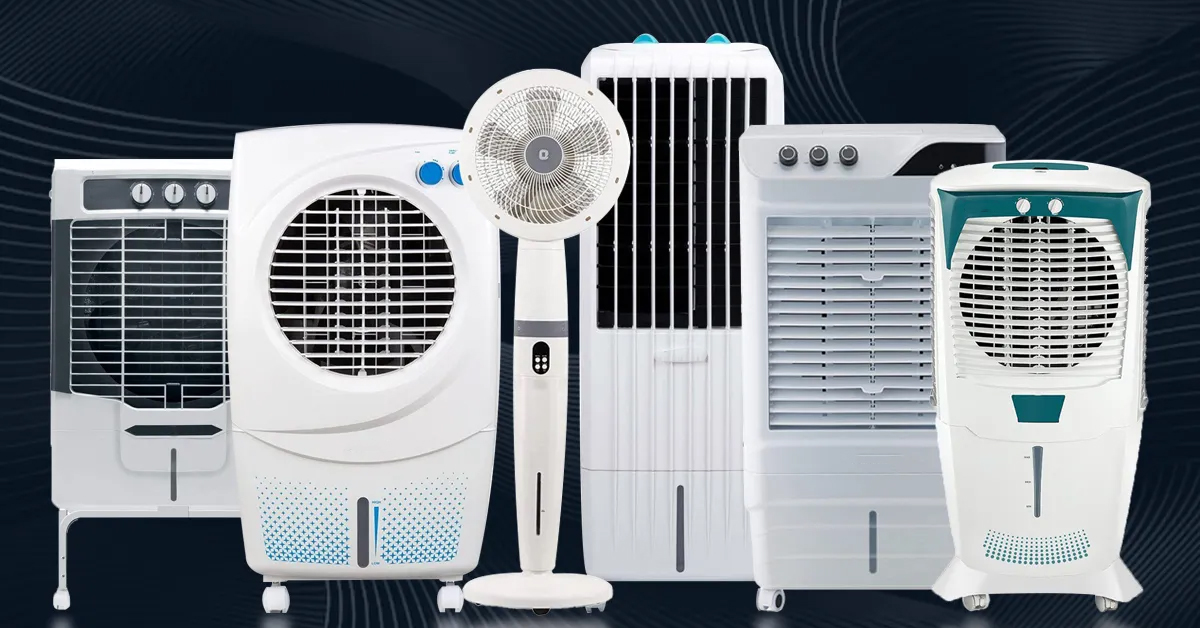Finding a reliable cooling system for your home becomes more and more important as the summer temperatures rise. Despite the fact that air conditioners are a popular option, air coolers provide a more energy-saving and environmentally beneficial alternative. Air coolers are increasingly common among houses because they can deliver cooling air while using less electricity. We will examine the important things to take into account when buying an air cooler for your home in this complete buying guide.
Understanding Air Coolers
Understanding how air coolers operate is essential for making an informed purchase. Air coolers, also known as evaporative coolers or swamp coolers, operate on the evaporation principle as opposed to air conditioners that use refrigerants and compressors. They pull warm air from the surrounding area, pass it through water-soaked cooling pads, and then discharge cool air via a fan. As a result of this process, the air is not only cooled but also given more humidity, making air coolers excellent for arid climates.
Evaluating Cooling Efficiency
While making your choice, consider the cooling efficiency of air coolers. This can be evaluated by taking the airflow rate and cooling capacity into account. The amount of air the cooler can move in a minute is indicated by the airflow rate, which is expressed in cubic feet per minute (CFM). More CFM guarantees better cooling efficiency. The cooler’s cooling capacity, expressed in British Thermal Units (BTU), indicates how much heat it can dispel in an hour. Based on the size of the room you want to cool, pick an air cooler with a suitable cooling capacity.
Assessing Room Size
Determine the size of the room you wish to cool before investing in an air cooler. The best air cooler depends on the area’s square footage because they come in a variety of sizes. For a tiny bedroom, a small cooler would work, but a larger one would be needed for a large living area. To choose an air cooler that fits your room size, go to the manufacturer’s suggestions or a sizing guide.
Portability and Design
If you intend to transfer the air cooler between rooms, pay attention to the air cooler’s design and mobility. For simple movement, look for characteristics like caster wheels and lightweight construction. Additionally, consider the design aesthetics to make sure the air cooler matches the style of your house.
Water Tank Capacity
How long an air cooler can run before needing to be refilled depends on the size of its water tank. Larger water tanks offer more continuous cooling hours, which is useful during hot summer evenings. To choose an air cooler with the right tank capacity, take into account your usage habits and the water supply.
Noise Levels
Despite the fact that air coolers are often quieter than air conditioners, different types might nevertheless have varying noise levels. Check the air cooler’s noise rating before buying to prevent any disruptions. If you intend to use the cooler in a bedroom or workplace, look for models that offer silent operation.
Additional Features
Explore the extra features that various air coolers provide to improve your cooling experience. You may alter the cooling settings to your liking by using some models’ remote controls, timers, and adjustable fan speeds. Consider these aspects to ensure the most comfort and convenience.
Maintenance and Cleaning
To maintain your air cooler operating at its peak performance, routine maintenance, and cleaning are necessary. Choose versions with cooling pads and filters that are simple to access for maintenance or replacement. Additionally, think about getting an air cooler with an automatic drain feature that gets rid of standing water and inhibits the development of bacteria or mold.
Conclusion
An air cooler might be a great option for cooling your home effectively and sustainably. You can choose the ideal air cooler to beat the summer heat by being aware of how air coolers work, assessing cooling effectiveness, determining the size of the room, taking portability and design into account, examining the water tank capacity, paying attention to noise levels, considering additional features, and accounting for maintenance needs. A wisely-picked air cooler will help you stay cool and comfortable while using less energy.


